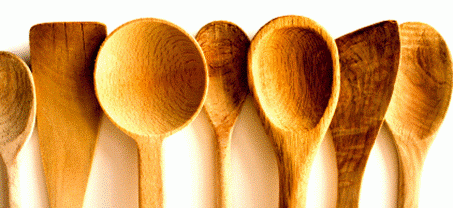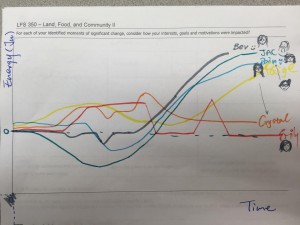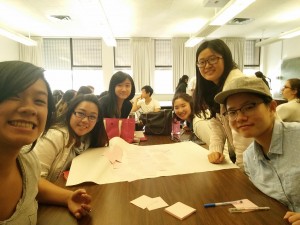Executive Summary:
This project is aiming to assess the conditions and usage of the community kitchens in two neighborhoods in Vancouver area, Grandview Woodland and Kensington Cedar Cottage. The objectives of the project are filling the knowledge gap between the City of Vancouver and the non-city owned community kitchens, and making recommendations based on the assets of the kitchens. Group members visited six different kitchens in these two neighborhoods to observe the kitchen environment and interview responsible personnels. According to the survey provided by our community partner, the questionnaire given to kitchen interviewees includes physical infrastructures, programs and how the kitchen is used, as well as the accessibility and benefit populations. We have both qualitative and quantitative research methods. The qualitative method including observations, surveys and interviews, and the quantitative data is collected through questions such as usage hours, managing time and number of people that can dine together. The results showed that physical infrastructures, such as kitchen equipment and facilities are well-maintained. The six kitchens we visited are mainly used for cooking class and group cooking events, which are beneficial for the participated seniors, families and children and new immigrants. On the whole, there are some improvements can be made based on the assets in the kitchens, including cultural diversity, willingness to put values into actions and efficient business plans to allocate resources. Hence, our recommendations are incorporating cultural aspects into food programming, providing resources needed for kitchen improvements and hiring professionals to ensure food knowledge accurately taught in programs, as well as creating a self-sustaining business to achieve financially independent in the long run.
A Moment of Significance:
Upon completion of our research, it was time to gather all our information into our final report, presentation, conclude our research questions and make our recommendations to our community partner. At the same time, we had a chance as a group to reflect on our experiences and the things that we took away from the project, both for the project and for our own personal development. Throughout the project, we all received a better understanding of Community-Based Experiential Learning (CBEL) and application of Asset-Based Community Development (ABCD). It was a very eye-opening experience to apply the knowledge we learned in class to our real-life experiences in the community/field. We also had a lot of fun, and enjoyed meeting different people in the community, instead of sitting in a lecture hall every week. Although the course overall was very challenging for us, we managed to pull through to the very end and was able to support each other and achieve our goal of finishing the project. This experience has taught us a lot about our own strengths and weaknesses, working within a group and going out of our comfort zones, as well as applying ABCD to real life situations. For every member of our group, these are all definitely experiences that have helped us grow as individuals and be able to apply to our future studies, work and life in the long run.


